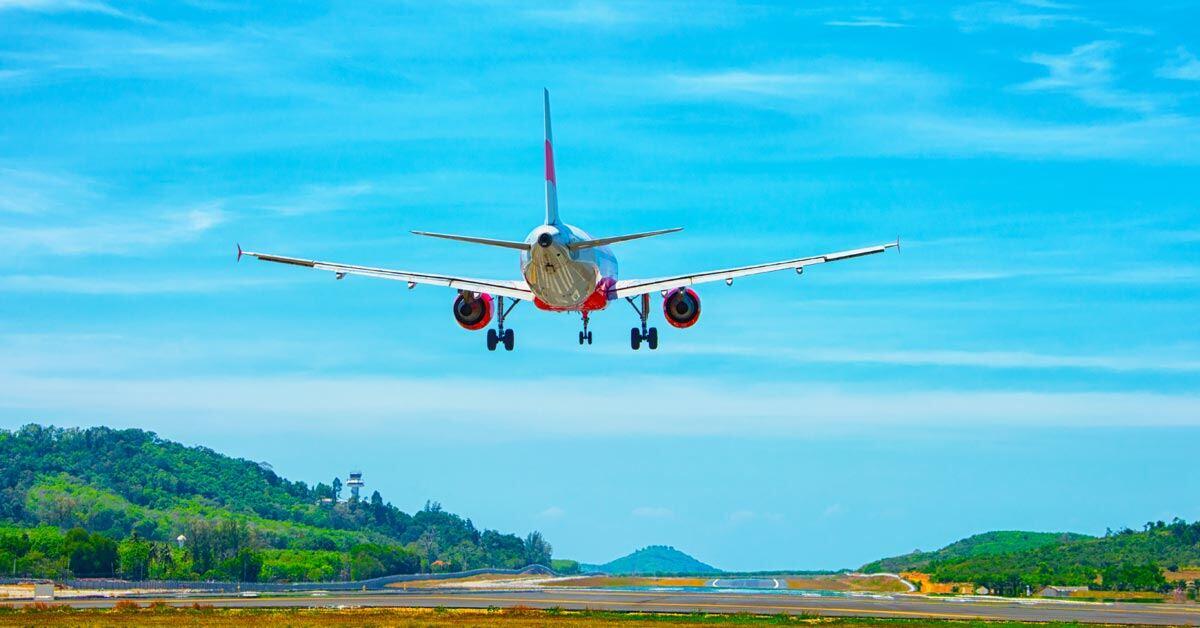3 min read
Study Shows Southeast Asia Could Cover 12% of Global SAF Production
ResourceWise
:
Sep 6, 2024 12:00:00 AM

The sustainable aviation fuel market has already faced immense challenges in its early adoption stages. One of the biggest obstacles has come in the production of the fuel itself.
As biofuel production facilities consider SAF’s opportunity, challenges like feedstock procurement and availability persist.
Despite these challenges, a new assessment shows that Southeast Asia is primed to contribute significantly to the global demand for SAF by covering up to 12% of production. What will this mean for the future SAF market as a whole?
Expanding SAF Market Share to Meet 2050 Goals
A recent analysis by the Roundtable on Sustainable Biomaterials (RSB), supported by Boeing, has shown Southeast Asia's potential for SAF. The region has the capacity to cover about 12% of the worldwide requirement for SAF to meet the aviation sector's net-zero emissions target by 2050.
The study encompassed 11 Southeast Asian countries. The data shows that the region's bio-based resources could yield nearly 45.7 million metric tons of SAF annually by the 2050 goal line.
The primary mechanism allowing this high amount of market share comes from available resources for feedstocks. 75% of the region’s SAF resources could come from recycled consumer and agricultural waste. Examples of these materials include:
- Cassava
- Sugarcane
- Municipal Solid Waste
In many cases, advanced feedstocks such as crop wastes would allow the use of food-based byproducts without requiring land use change to grow feedstock crops.
About the Roundtable on Sustainable Biomaterials
The RSB is a globally recognized organization dedicated to promoting the sustainable use of biomaterials. Established to provide a robust framework for sustainability assessment, RSB brings together a diverse set stakeholders:
- Various Businesses
- Non-governmental Organizations
- Academic Institutions
RSB’s work fosters transparency and efficiency within the biomaterials sector by developing comprehensive standards and certification systems. These systems directly support a reality-grounded transitional pathway toward a more sustainable, circular economy.
Setting the Sights for 100% Unblended SAF
The report also mentions that unblended SAF, 100% free of all fossil fuels, has the greatest potential to decrease aviation carbon emissions. While SAF still emits CO2 when burned, transitioning to unblended fuel would prove highly beneficial. It could reduce the lifecycle of emissions by as much as 84% as adoption moves toward 2050 emissions goals.
The study also looked beyond the quantity of available feedstocks in Southeast Asia and assessed other important environmental, social, and governance (ESG) considerations. This includes impacts on deforestation, water resources, food stability, and other economic factors.
Such knowledge is critical for guiding future SAF feedstock supplies from sources like agricultural and municipal waste while minimizing impacts on other natural resources.
Boeing’s Contribution to the SAF Assessment
As mentioned, Boeing played a direct part in developing and conducting this regional study. The aviation giant has already spoken on the significance of these findings.
The research validates the diversity of Southeast Asia's feedstocks and its considerable role in meeting worldwide SAF demands. But this level of scale cannot succeed without cooperation among governments and companies alike.
Regional governments and industries can amplify local SAF production by partnering on sustainability policies and investing in infrastructure. Doing so will promote continued economic growth while directly contributing to a sustainable future.
Going Beyond the Carbon Transition
The RSB is dedicated to making the transition toward an ecologically sustainable and socially fair circular economy.
Collaborating with its member community, the group has designed a comprehensive and reliable sustainability framework, the RSB Principles & Criteria. This framework provides guidance on how to remain focused on sustainability across this transition.
The framework goes beyond decarbonization by fostering positive social and environmental outcomes. It provides business leaders, industry professionals, and policy-makers alike with the tools to affect beneficial changes—both for humanity and the environment.
Impact of Southeast Asia's SAF Potential on the Market
The RSB’s analysis is good news for both the aviation industry and the renewable fuels market. The aviation sector faces ever-increasing pressure to reduce its carbon footprint. This announcement is a major step forward in achieving that objective.
The potential for the region to supply 12% of global SAF needs not only diversifies the sources of renewable fuel but also serves to enhance energy security for Southeast Asia. It reflects a shifting pendulum on fossil fuel reliance, which is subject to far more volatile market dynamics.
Commitments like those made by Boeing and the RSB highlight the critical importance of regional collaboration and investment in infrastructure. Such partnerships can lead to accelerated adoption and innovation within the SAF market and provide both financial and logistical support.
This announcement marks a catalyst for change, reinforcing the need for ongoing commitments toward a broader transition to renewable fuels. The implications of these advancements are far-reaching, promoting a greener future—not just for aviation, but for the entire energy landscape.
Get a 2025 SAF Market Outlook with On-Demand Webinar
The SAF market is quickly advancing with rapid growth, expansion, and investor interest. Accordingly, understanding this market movement is crucial for all stakeholders involved with this commodity.
ResourceWise recently held a live webinar covering all these critical topics in SAF and more—and it is now available on-demand.
Key Discussion Points:
- "State of the industry" in the Q4 SAF market
- Outlook on the global SAF market into 2025
- SAF mandates and their impacts as enforcement begins
- Supply and demand dynamics in Asia, the EU, the UK, and the US
- Future fuel production pathways, insights, and pricing
The event is presented by Matthew Stone, founder of Prima Markets and VP of Business Development at ResourceWise. Stone brings over a decade of industry knowledge and expertise across the biofuels and low-carbon feedstocks market. His insights can help you better understand where the SAF market is moving—and how your organization can prepare.
Don't miss out on this critical industry update. Get access to the on-demand webinar today.




![[Video] Molecules to Markets Episode 1: Chemical Markets Begin 2026 in a Supply-Driven, Margin-Sensitive Environment](https://www.resourcewise.com/hubfs/images-and-graphics/blog/chemicals/2026/weekly-video-series-molecules-to-markets/CHEM-Weekly-Video-Series-Molecules-to-Markets-Episode-1.png)
